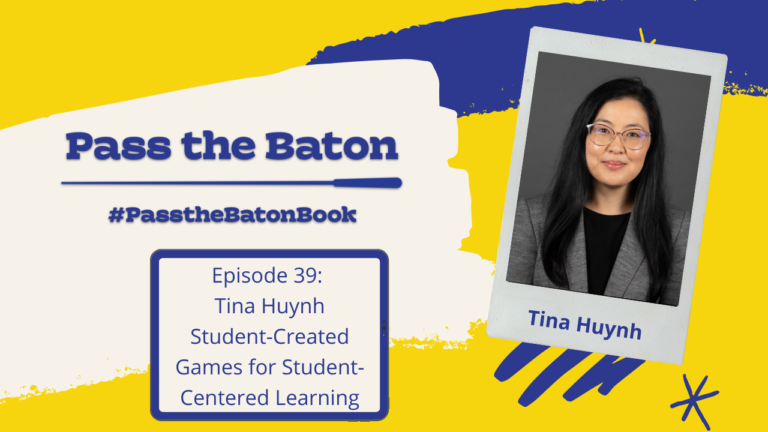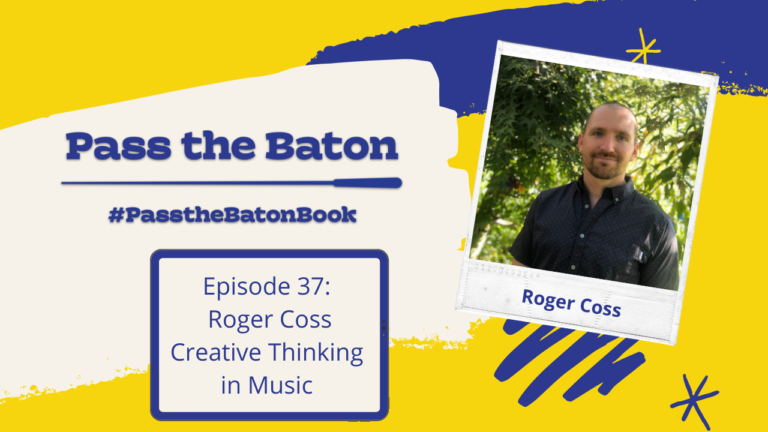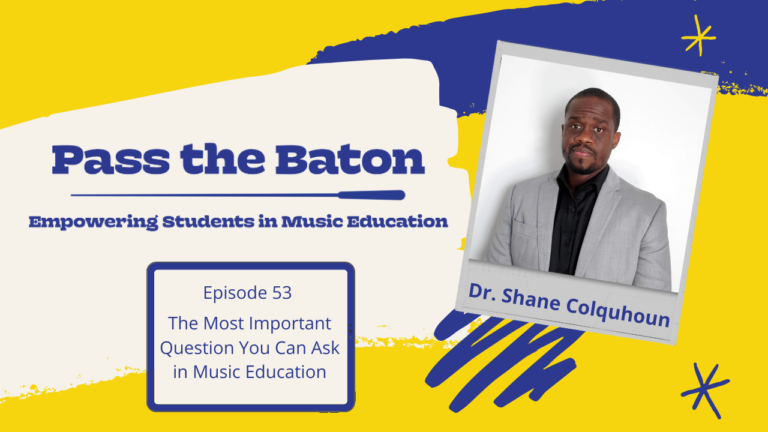This post was originally published on Off the Beaten Path: A Music Teacher’s Journey
Many of us have been in this new “distance learning” phase for a few weeks now – or as A.J. Juliani calls it “emergency remote learning.” Whatever term you use, we’re discovering that it’s not the same. We can’t replicate what happens in our classrooms online. And that’s ok. I think instead we need to focus on what we can do with this time.
School vs. Learning
In 2014, George Couros published a blog post that discussed the differences between school and learning (School vs. Learning). Several times since then I have seen this post re-surface, with music teachers arguing both for and against its message.

The blog post depicts school as compliant, sequential, scheduled, and teacher directed. It depicts learning as more fluid, personal, social, and non-linear. It’s understandable why many music teachers are conflicted about this! In a concert band rehearsal, students must follow the conductor, the learning of new skills is sequential, and the group is usually working towards a unified goal and level of mastery. How successful can an ensemble be without those things in place? But at the same time, in music we want our students to create! We want them to find passion and for it to have personal meaning for them.

My argument has always been, and will remain, in performing arts ensembles (band, orchestra, chorus, etc.) we need a balance of the two. And with that, true musicianship can occur.
What does this have to do with our current reality?
What does this have to do with our “new normal” of distance learning? I think now is when we can shift the focus away from the “school,” and dive deeper into the “learning.” Especially since there is no school building to limit us!
Over the next few weeks or months we cannot focus on ensemble skills, but this is the perfect time for students to focus on their individual musicianship skills.
We can help students consume (listen to and play) high quality music and encourage them to create their own. If you rarely have time for composition and improvisation during rehearsals, now is the time to start.
We can make learning more personal and less standardized by giving students choices in what they play, how they play it, and offering opportunities for reflection instead of only assessment.
How can we maintain and increase learning during uncertain times?
- Give students more voice and choice.
- Encourage students to create, not just consume.
- Focus on personal goals and growth.
This list could go on – and it will in future blog posts – but what excites me the most is the potential to do more within another passion of mine, empowering students. When we give students more voice and choice, encourage creating and focusing on their passions, we are giving them more ownership over their music making!
My plan for the next few weeks with the blog is to think about the qualities of an empowered music student that Kathryn Finch and I identified and find some simple ways we can incorporate them into distance learning. So instead of focusing on and trying to replicate everything we cannot do, I will look for what we can do and make the most of that.
This post was originally published on Off the Beaten Path: A Music Teacher’s Journey



